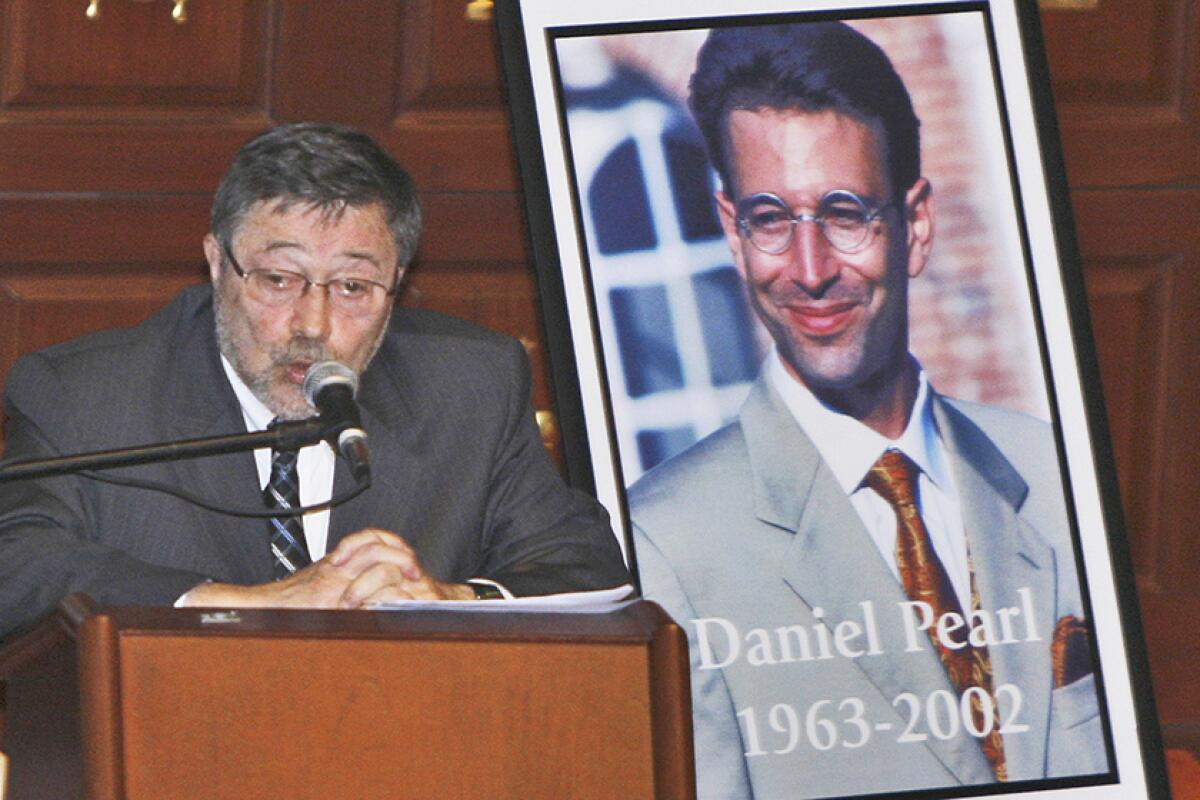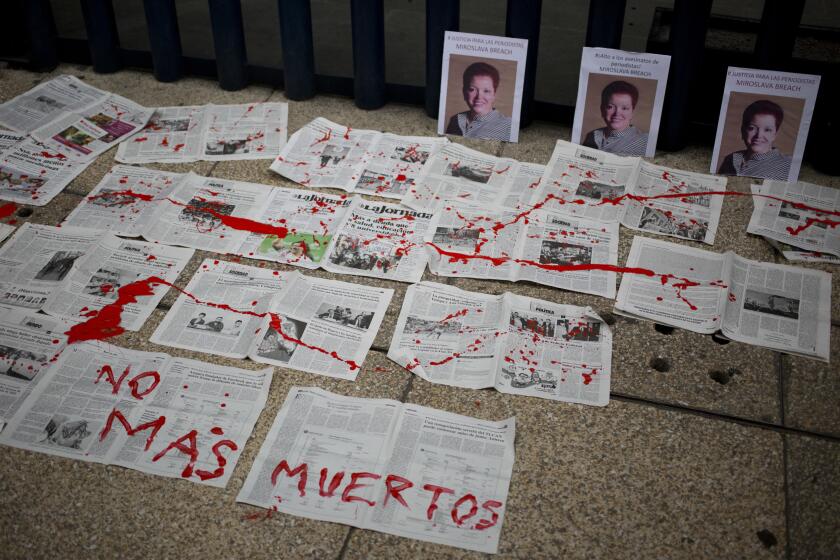Pakistan’s top court orders release of man accused in Daniel Pearl’s killing

- Share via
ISLAMABAD, Pakistan — Pakistan’s Supreme Court has ordered the release of a Pakistani man convicted and later acquitted in the gruesome beheading of American journalist Daniel Pearl in 2002.
The court Thursday also dismissed an appeal of Ahmad Omar Saeed Sheikh’s acquittal by Pearl’s family.
Sheikh has been on death row since his conviction in the death of Pearl in 2002. Sheikh “should not have spent one day in jail,” his attorney said.
Attorney Mehmood A. Sheikh, no relation, said the court also ordered three other Pakistanis, who had been sentenced to life in prison for their part in Pearl’s kidnapping and death, freed.
“The Pearl family is in complete shock [over] the majority decision of the Supreme Court of Pakistan to acquit and release … Sheikh and the other accused persons who kidnapped and killed Daniel Pearl,” according to a statement released by the family’s lawyer, Faisal Siddiqi.

Washington previously said it would demand Sheik’s extradition to the United States to face trial. It’s not clear whether Pakistan would support his extradition or even under what grounds it could go ahead.
In a statement Thursday, acting Atty. Gen. Monty Wilkinson said that the Justice Department was “deeply concerned” by the Pakistani court ruling and that Sheikh must be held accountable.
“While we remain grateful for the Pakistani government’s opposition to these acquittals on appeal, in light of the Supreme Court’s decision, the Department of Justice reiterates that the United States stands ready to take custody of Sheikh to stand trial here on the pending charges against him,” Wilkinson said.
The case seems certain to test the new Biden administration’s skill in dealing with Pakistan, which is considered a key ally in establishing peace in neighboring Afghanistan.
Pearl disappeared Jan. 23, 2002, while investigating militant links to the so-called shoe bomber, Richard Reid. His body was discovered in a shallow grave soon after a graphic video of his beheading was delivered to the U.S. Consulate in Karachi.
A report says Mexico has had the most journalists killed in retaliation for their work in 2020, followed by Afghanistan and the Philippines.
Sheikh long denied any involvement in Pearl’s death, but the Supreme Court heard that he acknowledged writing a letter in 2019 admitting a minor role — raising hopes for some that he might remain behind bars.
The court ruled 2 to 1 to uphold Sheikh’s acquittal and ordered him released, Siddiqi said.
Attorney Mehmood Sheikh warned the government of southern Sindh province, of which Karachi is the capital, against delaying his client’s release, as it has in the past even after being slapped with a contempt charge.
“I expect the Sindh government will not make a mockery of justice by continuing … to not release them for no good reason whatsoever,” he said.
Breaking News
Get breaking news, investigations, analysis and more signature journalism from the Los Angeles Times in your inbox.
You may occasionally receive promotional content from the Los Angeles Times.
The Pearl family urged both the U.S. and Pakistani governments to take action to “correct this injustice.”
“Today’s decision is a complete travesty of justice, and the release of these killers puts in danger journalists everywhere and the people of Pakistan,” the family’s statement said.
Siddiqi said the only legal avenue available now was to ask for a review of the court’s decision to uphold Sheikh’s acquittal. However, he said the review would be conducted by the same court that made that decision. “In practical terms,” that means the case is closed in Pakistan, he said.
The Supreme Court is expected to release a detailed explanation for Thursday’s decision in the coming days.
More to Read
Sign up for Essential California
The most important California stories and recommendations in your inbox every morning.
You may occasionally receive promotional content from the Los Angeles Times.













